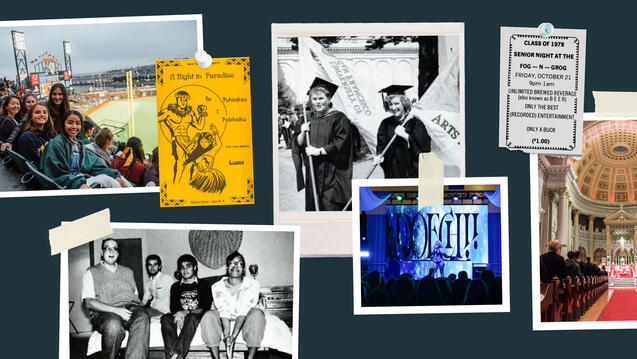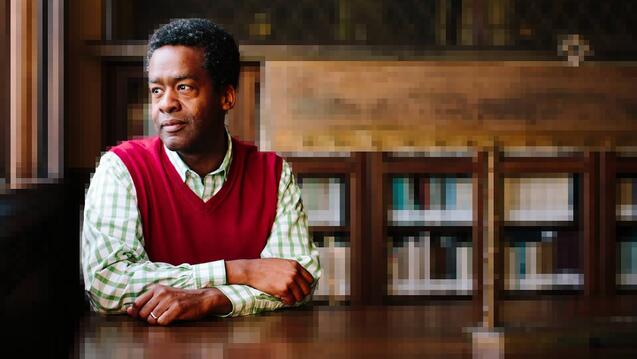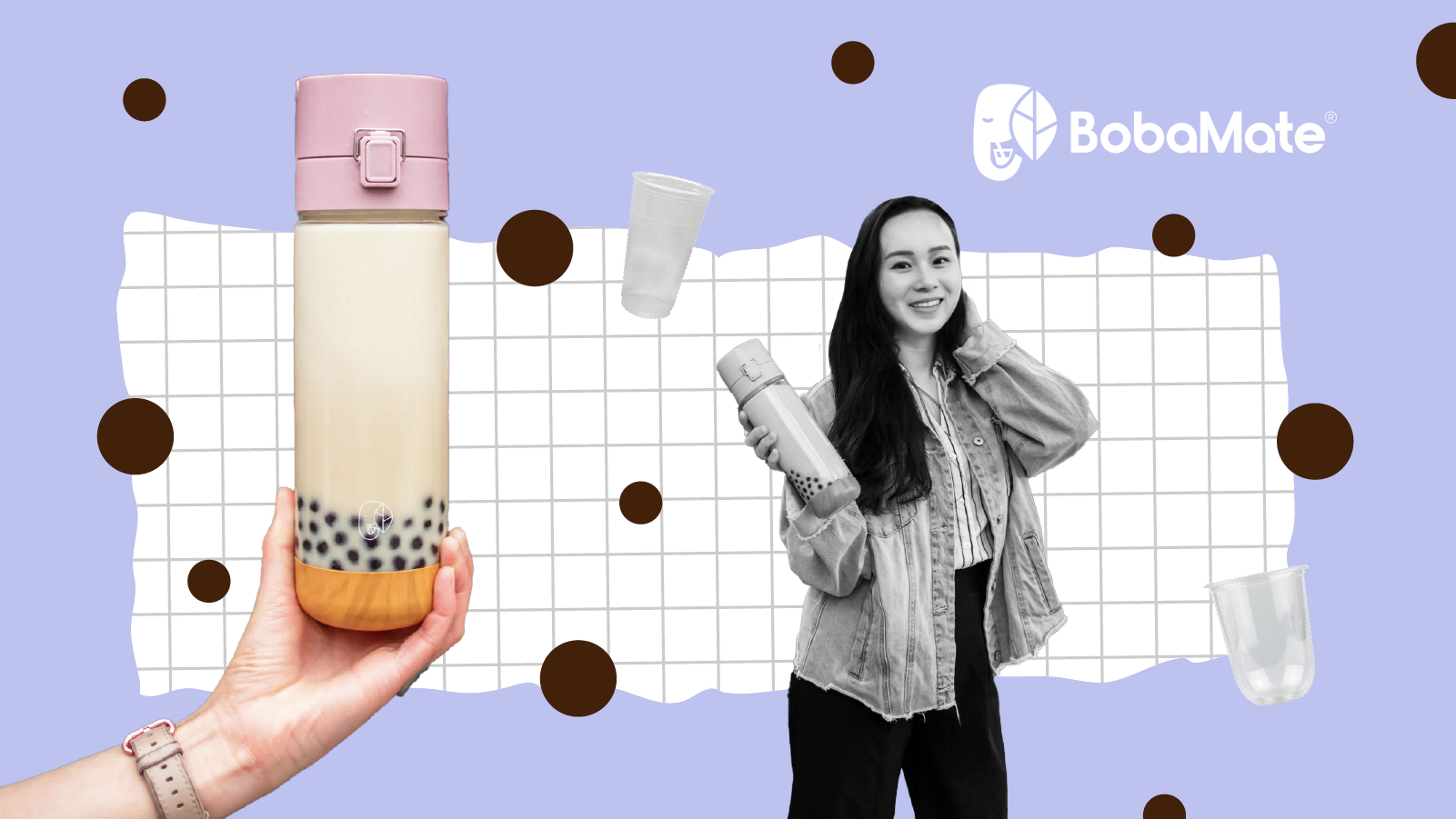

USF Entrepreneurs Make Their Mark and Make a Difference
The USF community is filled with entrepreneurs — and not just from the business program.
More than one-third of USF graduates start their own companies, says Johnathan Cromwell, associate professor in the School of Management and faculty director of the Entrepreneurship and Innovation Initiative.
“They come from every program and draw upon every part of their USF education: writing, reading, listening, speaking, creativity, analysis, problem-solving, collaboration, persistence, ethics, and service to others,” he says.
Cromwell’s advice to aspiring entrepreneurs? “Whether you’re founding a startup or joining a company, entering the public sector or starting a nonprofit, you have the capacity to make a positive impact. Don’t wait for the world to change. Change it yourself.”

She Launched a Green Business Before She Graduated
Galina Lang ’21 found her entrepreneurial inspiration in a trash can.
“During my years at USF, I was a boba barista at a shop in Glen Park,” she says. Each day she found plastic cups, straws, and lids overflowing the trash bins in the shop. The mounds of plastic inspired her to write a paper on plastic pollution for her rhetoric class, and in her research she learned that an estimated 500 billion plastic cups are thrown away worldwide every year. “That’s millions of tons of single-use plastic clogging landfills and floating in the ocean.”
Then she had an idea: a reusable boba bottle.
“It’s spill-proof, shatterproof, plant-based, BPA-free, easy to carry, and easy to clean,” she says. “It has a movable 360-degree swivel straw built in. It’s clear so you can see the tapioca pearls. And its curved base funnels pearls towards the center, making it easier for the straw to pick them up.”
Lang added an entrepreneurship minor to her advertising major, then used her classes to bring her business idea to life.
In a course called Internet Business Applications, she conducted a user study, created a marketing strategy, and designed a website for her company, called BobaMate. “Professor June Lee helped me a lot,” she says.
In 2020 Lang launched a fundraising campaign on Kickstarter and raised $58,000 in four weeks. She used the money — and what she learned in the Creativity, Innovation, and Applied Design class — to develop her BobaMate bottle and build her website. In her first year in business, she reached $100,000 in sales. One Instagram post in May 2024 garnered 276,000 likes. “I get orders from all over the world,” she says. “France, Italy, the UK, Mexico, Brazil, Australia.”
Lang sells the bottle directly to consumers on her BobaMate website. She plans to sell it, wholesale, to boba cafes, starting with a few spots in San Francisco.
“The boba tea market is still growing, from $2.8 billion in 2025 to $4.7 billion in 2032,” she says. “The more boba bottles I can sell to cut down on single-use plastics, the better.”

He Brings Solar Power to Homeless People
When Zac Clark ’23 launched his flagship product in 2022, he didn’t sell it. He gave it away, for free, to every person living on the street who wanted one.
“It’s a backpack that includes a sleeping bag, a radio, a flashlight, and a built-in solar panel with a battery that can charge mobile devices,” he says.
Phone charging is critical, Clark says. “More than 70 percent of unhoused people use cell phones to stay connected to social services such as shelters and food banks, but they have few places to charge their phones. We’ve heard stories from people who tell us they missed out on Section 8 housing, missed health-care appointments, or missed hearing from family members because their phones weren’t charged.”
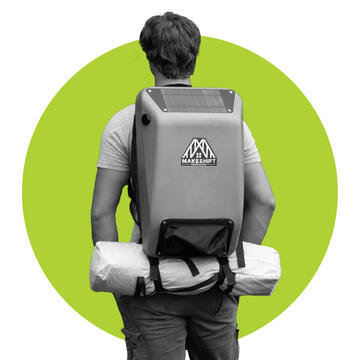
When Clark founded the HomeMore Project, a 501c3 nonprofit, in 2020 to help the homeless, he heard crickets. Hardly anyone clicked, called, or donated. Then he dreamed up a solar-powered backpack.
Clark, a double major in marketing and international business, spent his sophomore year developing the Makeshift Traveler backpack. He raised $60,000 to manufacture the first 500.
In 2022, he and his staff of three volunteers gave away 130 backpacks in San Francisco. In 2025, he and his staff of 20 volunteers have raised nearly $300,000 and will give away 3,000 backpacks in 35 cities, from San Diego to Eureka.
“We go wherever we’re needed and also wherever we’re wanted,” Clark says. “Some cities and counties have the budget to buy backpacks from us at our cost. We need that money to continue doing what we do.”
Each week, Clark spends about 40 hours running HomeMore and about 30 hours working toward a master’s degree in city planning at UCLA. Each month in his work at HomeMore, he spends most of his time applying for grants and managing the organization and part of his time working with unhoused people and with the cities and the community nonprofits that serve them. “I wish I could spend three weeks in the field and one week on administration, but there you go,” he says.
He’s the executive director and sole salaried employee of HomeMore. He makes just enough to pay his rent. In June he’ll graduate from UCLA. He plans to continue running HomeMore and to expand its programs beyond the backpack.
“Next year we’re launching a transitional housing and job-training program for unhoused people in rural communities,” Clark says. “The backpack was just the beginning, and it’s always been more than just a backpack. It’s the first step on the path to a new home.”
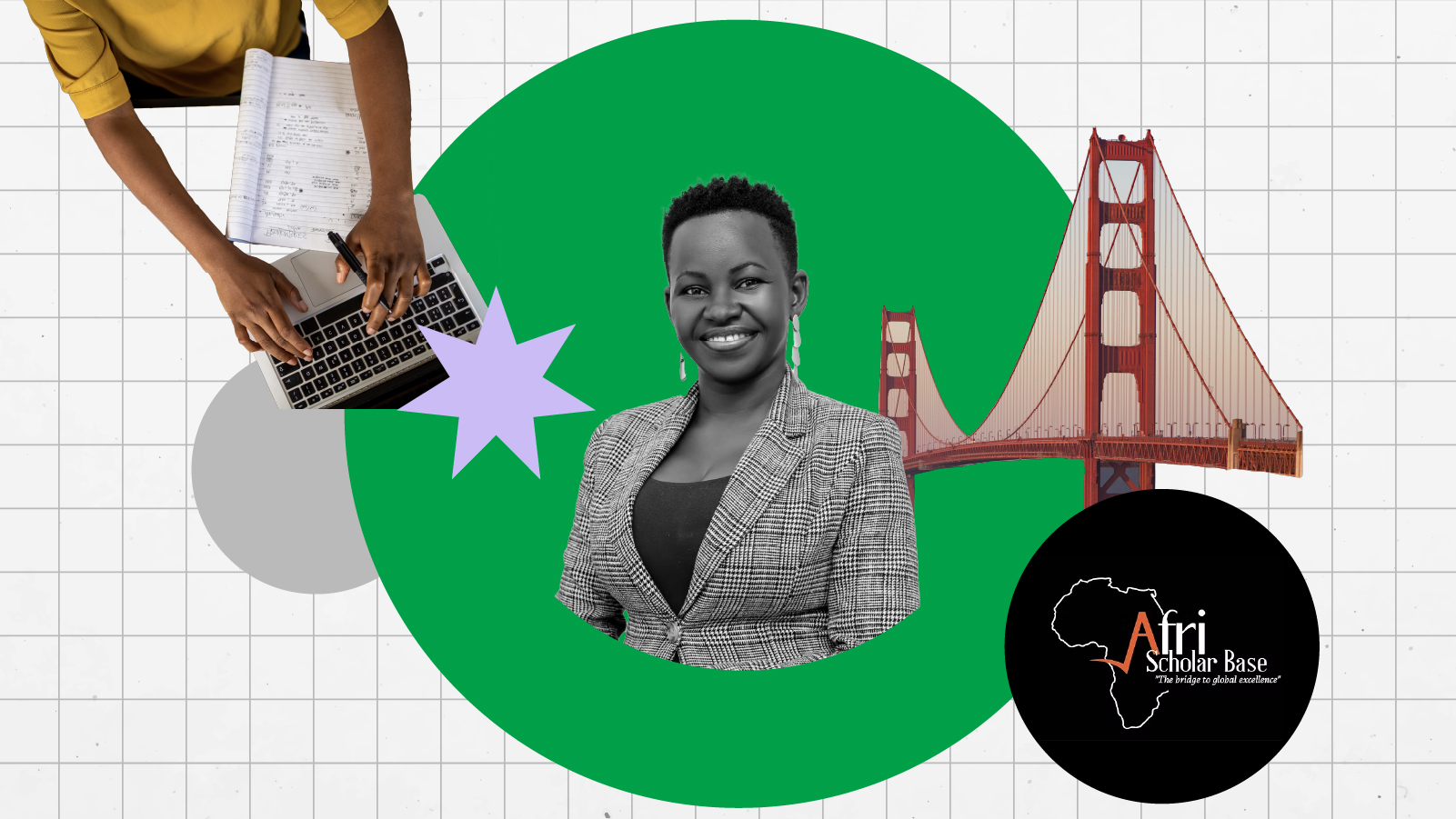
She Builds Bridges from Africa to America
Maureen Nyanudde MS ’25 runs Afri-Scholar Base, a one-on-one consulting service for African students seeking to study in the United States.
“If you’re thinking about college or graduate school in America, talk to me,” Nyanudde says. “I’ll help you figure out where to apply, how to apply, how to secure financial aid, how to secure a visa, how to find mentors, how to get settled and find your way in a new place — everything you need to succeed overseas.”
Nyanudde is from Uganda. “When it comes to opportunities, America is a 10 and Africa is a three,” she says. “I chose to go to graduate school in the United States for its opportunities, and I chose USF because it offers a master’s degree in entrepreneurship and innovation.”
At USF, Nyanudde has been an entrepreneur from day one. “Professors Shomit Ghose and John Coughlin sent me to business conferences and gatherings in San Francisco and then asked me, Who did you talk to? What did you discuss? What next? I had no idea how to network. I didn’t see this in Uganda. They pushed me into the pool and I didn’t know how to swim. I’m so glad they pushed. Also, Professor Johnathan Cromwell believed in my business idea and awarded me a grant.”
Nyanudde launched her Afri-Scholar Base website in November 2024. “It’s still under construction,” she says. “I learn something new in class and I run home to apply it to my business.” Thus far, she has helped three students in Uganda apply to USF — all three were accepted. She’s now forging relationships with student loan companies, visa experts, and admissions officers at various universities.
Afri-Scholar Base offers young people in Africa the guidance Nyanudde says she wished she’d received when she was in Uganda two years ago, trying to figure out graduate study in the United States.
Nyanudde plans to return to Uganda after she graduates in August. “More than 75 percent of the people in Uganda are younger than 30. That’s one of the youngest populations in the world. They need to get out of Africa for higher education, and then go back — to give back.”
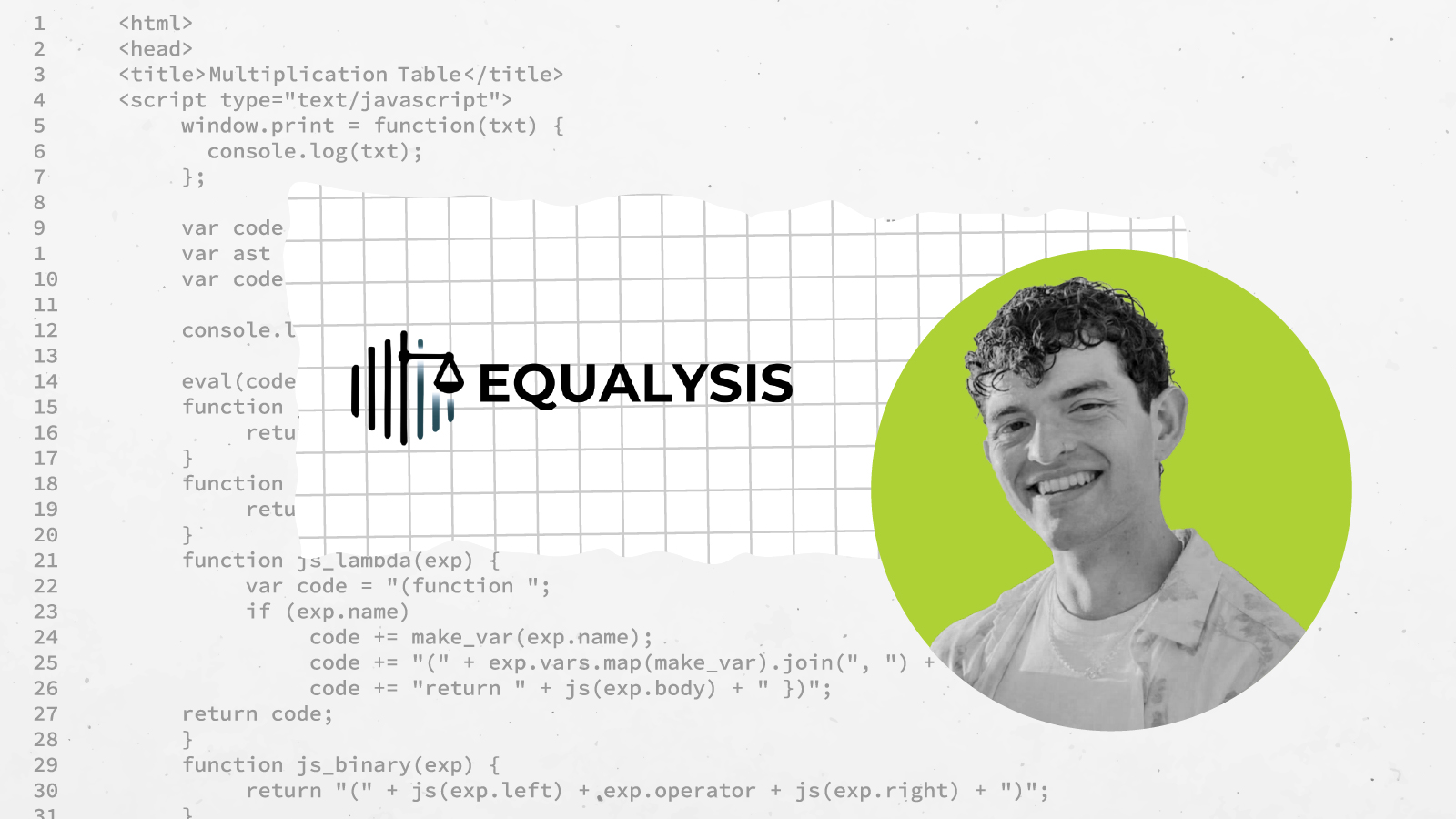
He Uses AI to Help Humans
Ian Duke MS ’24 wrangles data in pursuit of justice. Civil rights lawyers hire him to gather evidence in litigation claims. He uses machine learning to analyze police body-camera footage to identify and document racial profiling and uses large language models to connect and compile police reports from traffic stops.
“Civil rights lawyers and investigators aren’t trained in data science but they’re expected to analyze fragmented data from police and government agencies,” Duke says. “At Equalysis, we bring them the tools and expertise to analyze in three days what might otherwise take three months.”
For his practicum placement in the MS in Data Science program, Duke worked at the American Civil Liberties Union of Northern California office in San Francisco. There, he practiced the science that’s become his profession.
Duke launched Equalysis in San Francisco in September 2024, three months after his graduation. So far, he’s been retained as a scientific expert for agencies including the ACLU, Covington & Burling LLP, and the Lawyers’ Committee for Civil Rights of the San Francisco Bay Area. He’s provided expert support for ongoing cases including a lawsuit on behalf of Asian Americans in Siskiyou County.
“I hope to hire more staff in the future,” Duke says. “As Equalysis grows, I would love to establish internships for people who’ve experienced incarceration, and perhaps also for students at USF.”
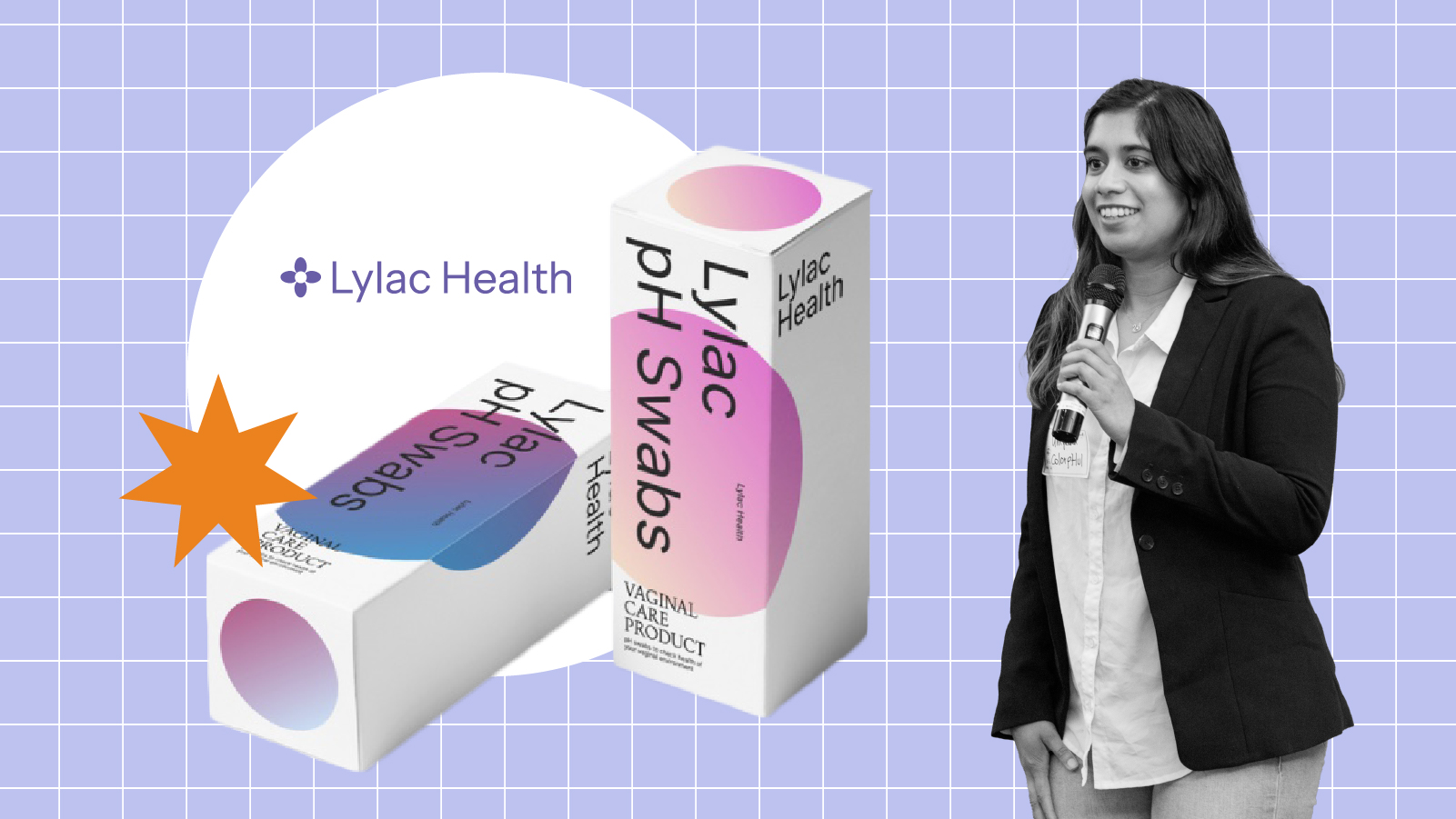
She Sells Empowerment
Umyeena Bashir MS ’23 encourages women to take an interest in their vaginal health.
Bashir launched Lylac Health in January to “empower women of all ages and all life stages to take charge of their well-being,” she says. Lylac Health’s first product is a digital meter that measures vaginal pH and transmits it to an online dashboard where a woman can track her health.
“Just dip a swab and measure your vaginal pH. That pH number will tell you if you’re healthy or if you’re headed for an infection or illness,” she says.
Bashir speaks from experience. “Back in 2023 I had a urinary tract infection, so I went to the doctor and they gave me antibiotics. I had 10 infections that year, and I ended up getting a kidney infection because the antibiotics weren’t effective. That was my aha moment. I switched the way I thought about health — from reaction to proactive, preventive care. I started tracking my pH.”
Bashir has been an entrepreneur for years. She founded ColorpHul while she was at USF studying for a master’s degree in chemistry. ColorpHul makes the pH swabs used in the Lylac Health digital meter. She’s now a master of public health student at UC Berkeley.
“USF was a great incubator for startups. Berkeley is, too,” she says. “It’s good to have professors in your corner, and it’s great to be in a program that not only tolerates entrepreneurs but actually encourages entrepreneurs.”
